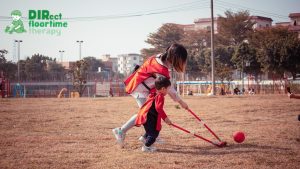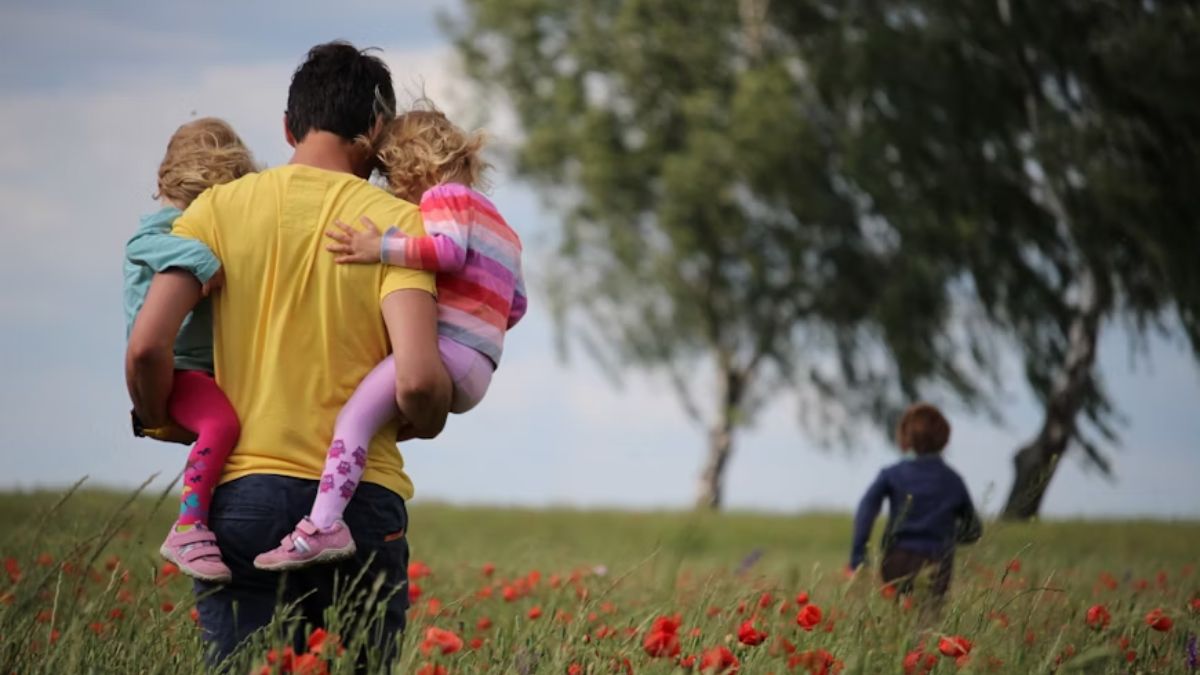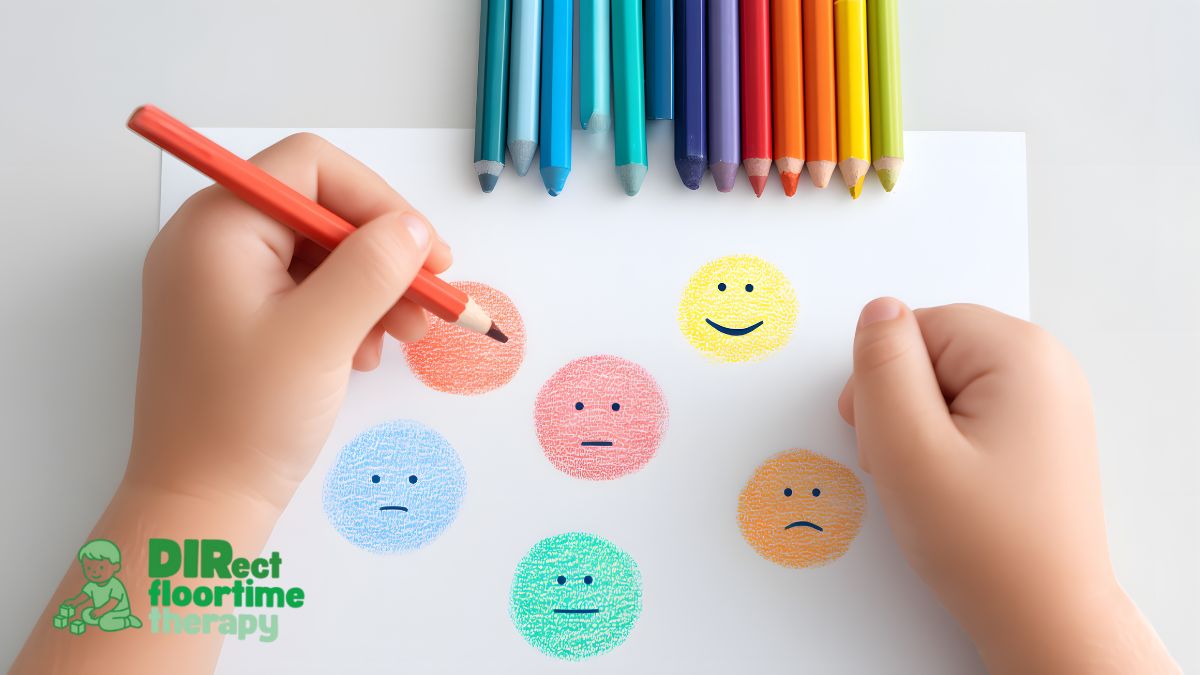Key Points:
- Parent-child bonding activities therapy uses games, crafts, and storytelling to deepen emotional and social bonds.
- Listening, empathy, and interactive play teach children social skills, resilience, and emotional regulation.
- Observing, co-playing, and offering encouragement helps children feel supported, confident, and motivated to learn.
Parent-child bonding is more than a feel-good idea—it’s the backbone of your child’s emotional, social, and cognitive growth. But how can parents nurture this connection in ways that feel meaningful and fun? The answer lies in play-based learning. By engaging your child in games, creative projects, and shared exploration, you spark curiosity, problem-solving, and lasting emotional security.
Studies confirm it: children with consistent, positive engagement from parents show higher self-esteem, better school performance, and improved social skills. So what does effective play-based learning look like? How can it boost your parent-child bond in real life? Keep reading.
Parent-Child Bonding Activities Therapy
Parent-child bonding activities therapy combines fun with emotional growth. Research shows that guided, structured play strengthens brain connections, improves emotional regulation, and builds social skills (Cozolino, 2010; Siegel, 2007). When you join in, you’re more than a participant—you’re a partner in your child’s learning journey.
Examples of effective activities:
Arts and crafts: Coloring, cutting, or building simple crafts improves creativity and fine motor skills. A painting session sparks conversations about choices, colors, and imagination, deepening your connection.
Board games and puzzles: Cooperative games and age-appropriate puzzles teach patience, teamwork, and problem-solving. Even 15 minutes can boost attention and social understanding.
Science experiments: Mixing colors or growing plants encourages curiosity and critical thinking. Kids learn to ask questions, make predictions, and celebrate discoveries together.
A University of Toronto study found children in guided play programs had higher engagement and emotional understanding than those who only received direct academic instruction. Even free, child-led play matters. It encourages independent thinking, decision-making, and exploration, helping children feel both capable and supported.
Relationship Building

Strong parent-child relationships require more than shared activities—they need intentional emotional investment. How often do you pause to listen, empathize, and respond to your child’s curiosity? Kids with responsive parents tend to develop social skills, resilience, and emotional regulation (Ginsburg, 2007).
Ways to build relationships through play:
Storytelling and reading: Discuss characters and plots to teach empathy and problem-solving. Ask, “Why do you think the character acted that way? ” to encourage critical thinking and show your child their thoughts matter.
Role play and imaginative games: Pretend play, like being astronauts or chefs, lets children explore feelings and social scenarios. Studies show sociodramatic play improves empathy and conflict resolution.
Music and movement: Singing, dancing, or playing simple instruments together strengthens coordination, rhythm, and emotional bonding. Shared music releases endorphins and reduces stress.
Routines matter too. Nightly reading, morning hugs, or weekend cooking sessions signal that your child is valued. Neuroscience shows consistent, loving interactions strengthen synapses and foster emotional resilience. Even ten focused minutes of distraction-free activity can strengthen parent-child bonding.
Parent Involvement
Parent involvement is key to play-based learning. Children feel safe and motivated when parents are present, attentive, and engaged. But being involved isn’t just about showing up—it’s about engaging emotionally and cognitively.
Ways to enhance parent involvement:
Observation and facilitation: Watch how your child interacts with games or toys. Offer gentle guidance to identify strengths, interests, and areas needing support.
Collaboration and co-play: Build block towers, solve puzzles, or play pretend together. This shows your child their ideas matter and that learning is shared.
Encouragement and positive reinforcement: Celebrate curiosity, effort, and persistence. Saying, “I love how you kept trying,” nurtures confidence and motivation.
Parent-child interaction therapy extends beyond play. Meals together, nature walks, or simple chores like gardening are learning and bonding opportunities. Research by the American Academy of Pediatrics confirms that these interactions improve executive function, social-emotional skills, and even early literacy.
Integrating Play-Based Learning into Daily Life

Consistency strengthens parent-child bonds. You don’t need elaborate setups—meaningful engagement is enough.
10 minutes of focused play: Even short, distraction-free sessions like building LEGO or doing a puzzle have measurable benefits.
Routine-based play: Sing during bath time, read at bedtime, or count items during grocery trips.
Outdoor exploration: Nature walks, gardening, or playground visits develop motor skills, problem-solving, and curiosity.
Balance free play with guided play. Free play lets children explore independently, while guided play teaches language, math, and social-emotional skills. Together, they keep kids motivated and curious.
The Science Behind Play-Based Parent-Child Bonding
Did you know the first five years of life are the most critical for brain development? During this period, children form more synapses than they will ever use. But here’s the exciting part: play and positive engagement actually strengthen these connections. This shapes emotional regulation, problem-solving skills, and resilience (Cozolino, 2010; Siegel, 2007).
What happens when kids experience secure parent-child bonding? They tend to show higher self-esteem, better stress coping, and greater curiosity and engagement in learning. Even during stressful times, shared play creates a safe space for kids to process feelings. Through imaginative scenarios, they can explore solutions and express emotions before they even have the words. This builds resilience and lifelong well-being.
One way to remember the foundation for emotionally healthy, resilient kids is the “Four C’s”: Connection, Courage, Consistency, and Comfort.
But what part of the brain is actually activated during play? Studies show areas in the prefrontal cortex, dorsal and ventral striatum, parts of the amygdala, and habenula are all engaged. These regions help with planning, reward, emotion, and motivation—key skills your child develops while having fun.
When is play therapy most effective? Research suggests ages 3 to 12 benefit the most, though teens and even adults gain from play techniques (Carmichael, 2006; Gil, 1991; Landreth, 2002; Schaefer, 1993).
In short, play isn’t just fun—it’s science-backed. Every block stacked, story told, and imaginative game played helps your child grow smarter, stronger, and more emotionally resilient. Are you ready to turn playtime into a foundation for lifelong confidence?
Play as a Tool for Lifelong Development

Play-based learning benefits children well beyond early years. Kids with strong parent-child bonds and frequent guided play are more likely to:
- Solve problems collaboratively.
- Approach challenges creatively.
- Show empathy and social awareness.
- Stay motivated to learn.
Mixing colors in art, solving puzzles, or role-playing teaches persistence, confidence, and reasoning skills—all while strengthening emotional bonds. Consistent positive play helps buffer stress, benefiting both parent and child.
Key Takeaways for Parents
Play-based learning is a practical, research-backed strategy for parent-child bonding. Its success relies on:
Parent-child bonding activities therapy: Structured or free play that strengthens learning and emotional connection.
Relationship building: Shared experiences, listening, empathy, and interactive play.
Parent involvement: Active engagement, guidance, encouragement, and consistent presence.
Even brief daily actions—reading, asking questions, or exploring outdoors—make a measurable difference. Children flourish when parents are playful, supportive partners in their learning journey.
Build Lasting Bonds
Play isn’t just fun—it’s essential. Play-based learning, including Direct Floortime Therapy, fosters curiosity, connection, and discovery. Guided and free play helps children feel valued, confident, and understood. Short, intentional moments build skills and emotional security. Techniques from Direct Floortime Therapy encourage children to express themselves, process emotions, and develop resilience.
Ready to make a lasting impact on your child? In North Jersey, we help families explore play-based learning to strengthen parent-child bonds. Reach out to us today. Together, we can guide your child toward emotional confidence, cognitive growth, and joyful self-expression—one playful moment at a time.



